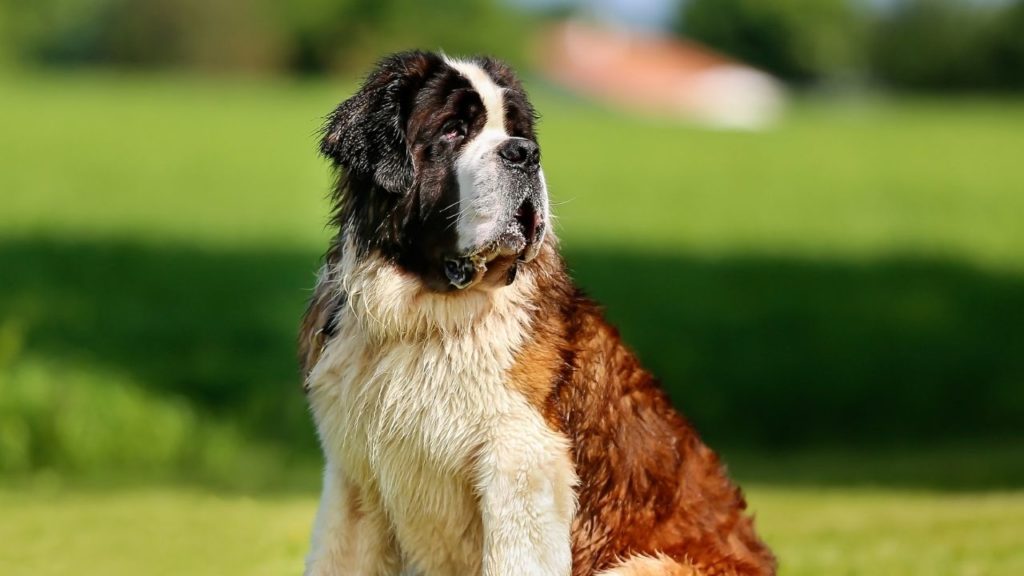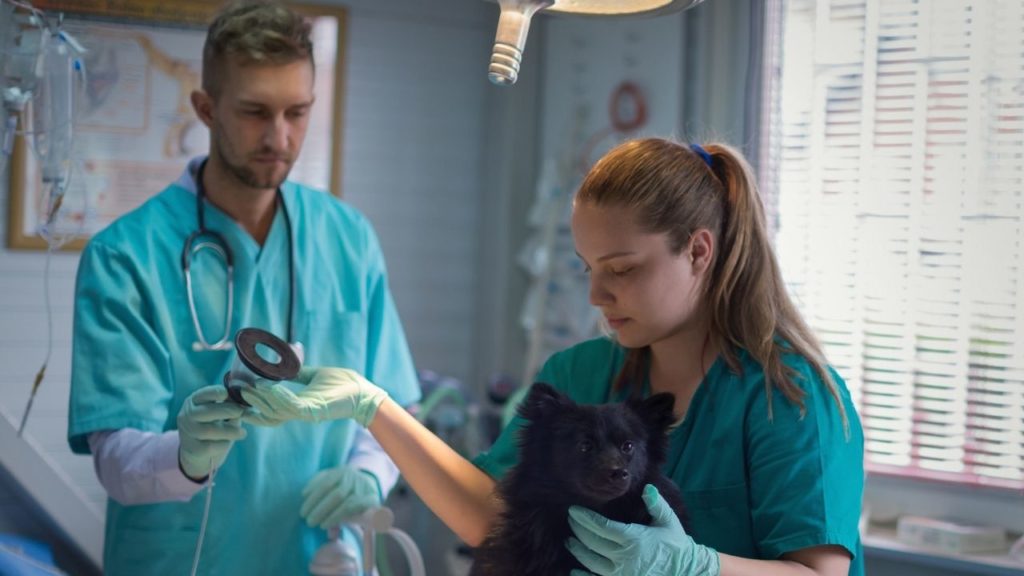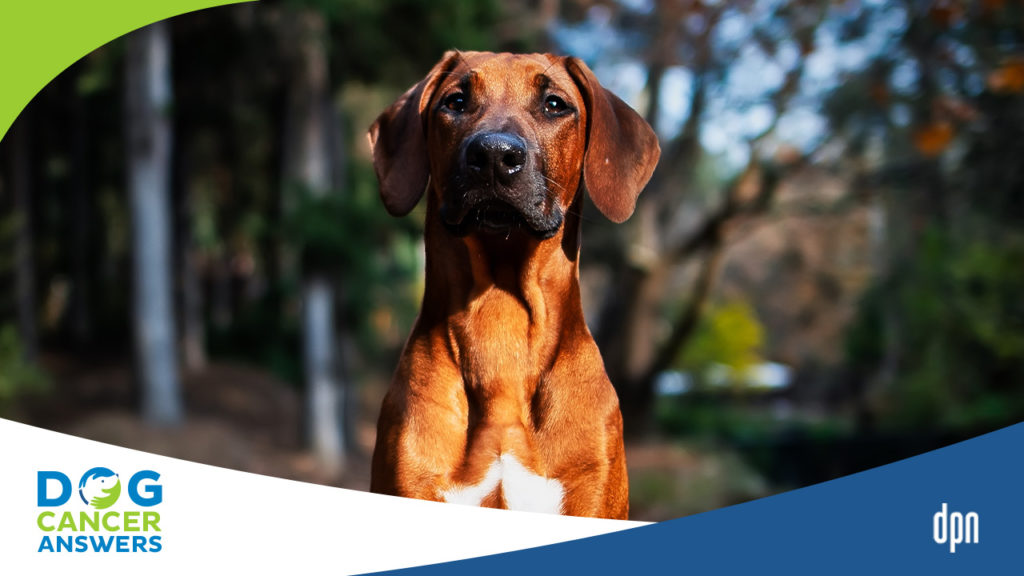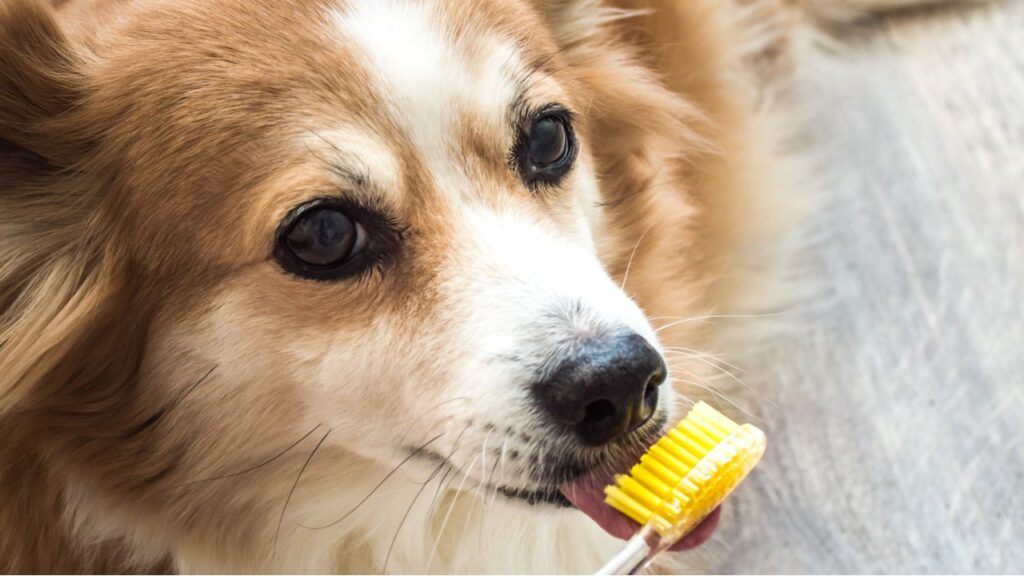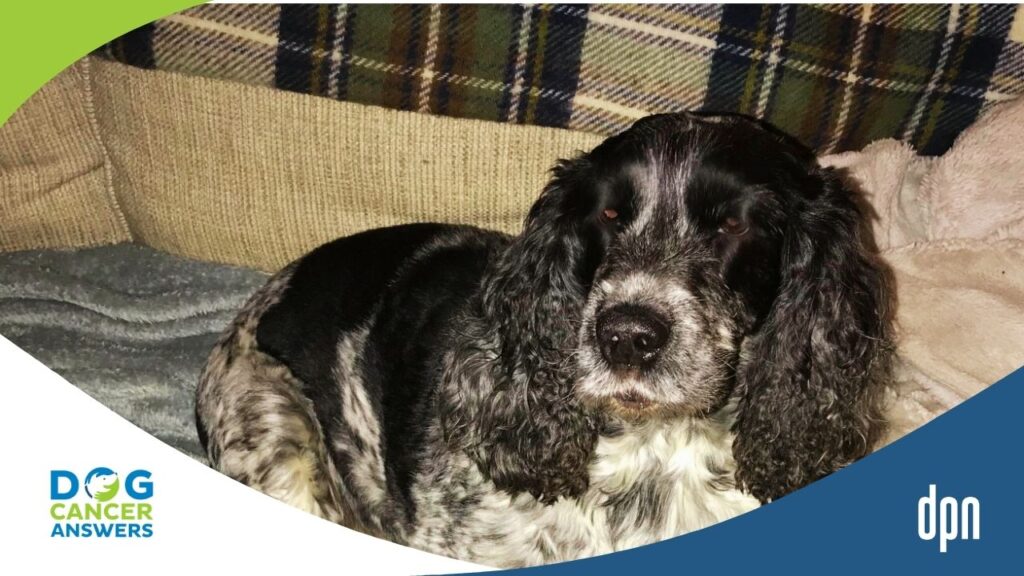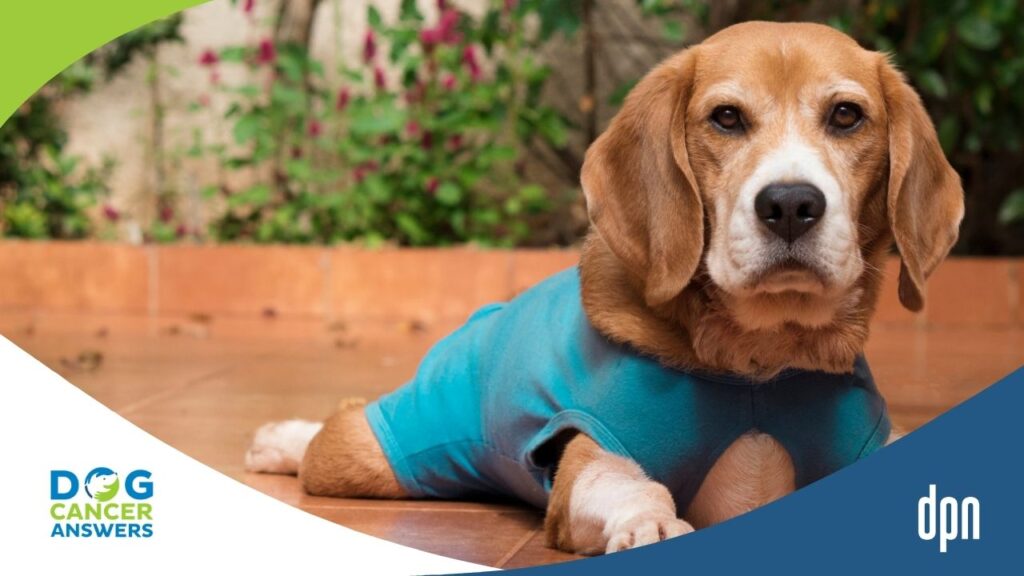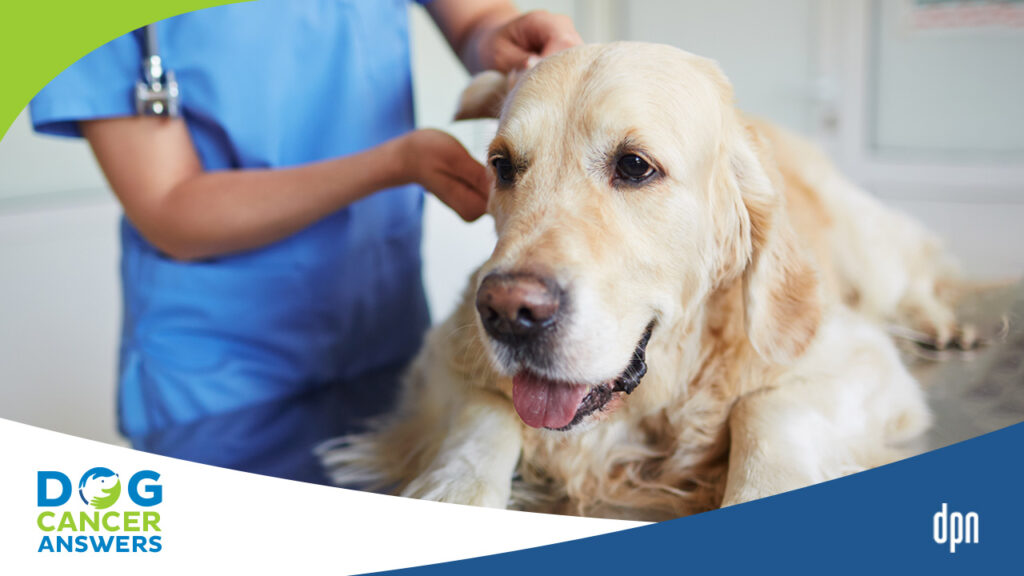[00:00:00] >> James Jacobson: Today on our special Exam Room Series, oral cancers, and what you need to know to help your dog.
[00:00:07] >> Announcer: Welcome to Dog Cancer Answers, where we help you help your dog with cancer. Here’s your host, James Jacobson.
[00:00:16] >> James Jacobson: Hello friend. Let me start off by saying, I’m sorry. I’m sorry that you’re listening to this podcast.
[00:00:22] Sure. I know that’s an odd thing for a host to say in a welcome message, but the fact that you’re listening to my voice now probably means that you have a dog who has been diagnosed with an oral cancer. I’ve been there. And I know what it’s like to have a dog as cancer. And I also want to let you know that you are in the absolute best place because you’re in good company.
[00:00:45] Unfortunately, cancer is a number one killer of dogs, but there is a lot of hope. Dogs do not have an expiration date stamped on their forehead. There are so many things that you can do to help your dog after you get an oral cancer diagnosis. Now I’m lucky. My veterinarian is Dr. Demian Dressler, author of the bestselling book, The Dog Cancer Survival Guide.
[00:01:08] He’s a renowned authority on full spectrum approaches to treating dog cancer. And today you can come into his exam room and listen to what he would tell one of his clients whose dog was diagnosed with oral cancer.
[00:01:25] >> Dr. Damien Dressler: So oral cancers are really a group of cancers. They come in different types. One of the interesting things about these cancers is that the oncologist perspective is going to be a little bit different than what we have in private practice. And here’s what I mean by that. An oncologist will normally be faced with malignancies that is cancer.
[00:01:45] Bumps can be malignant, cancerous, but not every bump is malignant. Very commonly in private practice, we will find bumps in the mouth growing along the gum line, or maybe on the roof of the mouth, right along kind of where the teeth are, but the base of the teeth on the pink gums. And there’ll be a bump there.
[00:02:02] And that bump can be benign, or it can be malignant. Now in private practice, many of those are benign. They can cause problems because food can get stuck behind them and they can accelerate dental disease and so on. But an oncologist most of the time when they hear about a bump in the mouth, well, they’ll be immediately assuming that it’s malignant.
[00:02:20] And I think that’s just because mainly the papers that are out there are from oncology referral centers and I don’t think that a bump in the mouth is as necessarily dangerous as perhaps some of the data out there, which suggests. Now having said that if you have a growth in the gum of your dog, it’s important to get it checked because sometimes it is cancerous.
[00:02:43] Whether it’s a fibrosarcoma or other types. It may again be benign. These are called epulides or epulis. That’s a benign oral growth. Now it’s important to understand that when we’re dealing with malignant growths in the mouth, they are quite aggressive. You remove them and sometimes they’ll come back close to where you remove them in the first place.
[00:03:03] So these are cancers where doing something in the location of the tumor, like surgery, or even like radiation is really important. These are cancers that do not respond well to chemo drugs. They just don’t. Sometimes you can help decrease the cancers somewhat. But when the discussion revolves around surgery, it’s important, I think, to not start switching to the idea that we’re going to try to deal with this naturally and go buy some vitamins for your dog. It is not going to work. These cancers are too aggressive for that. That’s why removing the cancer cells in a procedure is critically important. I think it’s also really important to not forget about all of the other aspects of cancer care that we have available that are not going to be discussed many times in a conventional cancer care discussion. Whether we’re talking about helping the immune system, whether we’re talking about helping to promote normal levels of apoptosis, we discussed this in The Dog Cancer Survival Guide, whether we’re talking about how do you manage these guys nutritionally.
[00:04:10] All of the different tools that we have at our disposal to help reduce what’s called the tumor cell burden, which is the number of tumor cells in the body. It’s important to capitalize on all of these things so we can have the best possible outcome for our dogs.
[00:04:28] >> James Jacobson: If you’d like to hear more about dog cancer and what you can do to help your dog now, I encourage you to pick up a copy of Dr. Dressler’s book, which just happens to be the sponsor of today’s episode and this entire special Exam Room Series here on Dog Cancer Answers. The name of this best-selling book is The Dog Cancer Survival Guide: Full Spectrum Treatments to Optimize Your Dog’s Life Quality and Longevity.
[00:04:54] The authors are Dr. Demian Dressler, who you just heard from, and Dr. Susan Ettinger, an oncologist in New York. And in a minute, I will tell you how to get their book at a discount. This book is considered the bible of dog cancer, and it covers so much information in an easy to understand, easy to reference guide.
[00:05:13] For example, the book covers everything that you need to know about conventional veterinary treatments, that’s surgery, chemotherapy, and radiation, including how to reduce their side effects. The most effective non-conventional options, including botanical nutraceuticals, supplements, nutrition, and mind, body medicine, and the book helps you to analyze the options and develop a specific plan for your own dog based on your dog’s type of cancer, your dog’s age, your financial budget and your time constraints, as well as your personality. The Dog Cancer Survival Guide is available wherever fine books are sold, both online and in physical bookstores. It’s available either in paperback, or as an e-book edition. And the e-book is under $10.
[00:05:59] The website to get either the paperback or the e-book is www.DogCancerBook.com. And you will save 10% if you use the promo code PODCAST, when you check out, you’ll save 10%. The website again, www.DogCancerBook.com. Use the promo code PODCAST for 10% off. That is www.DogCancerBook.com.
[00:06:22] I want to let you know that we have lots of free, helpful information on our podcast website, the URL is DogCancerAnswers.com. It’s where you can listen to or download our entire back catalog of episodes. It’s the best way to get the information that you need to help optimize your dog’s life quality and longevity.
[00:06:49] Do you have a question for a dog cancer veterinarian? Well, one of our veterinarians could answer your question on a future episode of Dog Cancer Answers. Please call our listener line and record your question. The telephone number is (808) 868-3200. That is (808) 868-3200. Or visit our website at DogCancerAnswers.com. With dog cancer, you want to get relevant information as quickly as possible. So make sure you get the next episode of our podcast as soon as it’s released by subscribing to Dog Cancer Answers in Apple Podcast or your favorite podcast app, we’re also on Spotify as well as YouTube.
[00:07:33] That’s all for this episode in our Exam Room Series, I’d like to thank Dr. Demian Dressler for being our guest today. Until next time. I’m James Jacobson. From all of us here at Dog Cancer Answers and Dog Podcast Network, I wish you and your dog, a warm Aloha.
[00:07:54] >> Announcer: Thank you for listening to Dog Cancer Answers. If you’d like to connect, please visit our website at DogCancerAnswers.com or call our listener line at (808) 868-3200. And here’s a friendly reminder that you probably already know, this podcast is provided for informational and educational purposes only. It’s not meant to take the place of the advice you receive from your dog’s veterinarian.
[00:08:17] Only veterinarians who examine your dog can give you veterinary advice or diagnose your dog’s medical condition. Your reliance on the information you hear on this podcast is solely at your own risk. If your dog has a specific health problem, contact your veterinarian.
[00:08:30] Also, please keep in mind that veterinary information can change rapidly therefore, some information may be out of date.



